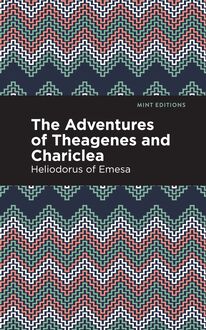-
 Univers
Univers
-
 Ebooks
Ebooks
-
 Livres audio
Livres audio
-
 Presse
Presse
-
 Podcasts
Podcasts
-
 BD
BD
-
 Documents
Documents
-
- Cours
- Révisions
- Ressources pédagogiques
- Sciences de l’éducation
- Manuels scolaires
- Langues
- Travaux de classe
- Annales de BEP
- Etudes supérieures
- Maternelle et primaire
- Fiches de lecture
- Orientation scolaire
- Méthodologie
- Corrigés de devoir
- Annales d’examens et concours
- Annales du bac
- Annales du brevet
- Rapports de stage
La lecture à portée de main
Vous pourrez modifier la taille du texte de cet ouvrage
Découvre YouScribe en t'inscrivant gratuitement
Je m'inscrisDécouvre YouScribe en t'inscrivant gratuitement
Je m'inscrisEn savoir plus
Vous pourrez modifier la taille du texte de cet ouvrage
En savoir plus

Description
Set in a medieval era of swords, battles, and dragons, King Mark of Cornwall takes in a young boy, with whom he felt a strong connection to even before he learned of their blood relation. When the young boy, Tristan, grows into a brave and honorable man, he is sent to settle a conflict the kingdom had with an Irish settlement. When Tristan goes to fight the Irish champion, he defeats him but is badly wounded. While he is struggling to regain his health, he meets Iseult, an Irish princess, who had been promised to his uncle as a wife. Once Tristan’s health returns, he escorts Iseult to the kingdom of Cornwall. However, when one of Iseult’s maids casts a binding love spell on Tristan and Iseult, they quickly fall into a forbidden love. Caught in a tortured love triangle, Tristan and Iseult try to suppress their love for each other out of respect for King Mark, however, their passion is persistent. Torn between reputation and romance, Tristan and Iseult must fight against their passions to remain chivalrous and honorable.
With dramatic and beautiful writing, The Romance of Tristan and Iseult is an exciting romance novel filled with tragedy, magic, quests, and adventure. Using medieval sources, including the poem that the myth of Tristan and Iseult originated from, Joseph Bédier’s The Romance of Tristan and Iseult is a retelling of a classic star-crossed romance that inspired later iconic love stories such as Shakespeare’s Romeo and Juliet. This influence has even spread to the 21st century, inspiring film adaptations and countless depictions of doomed lovers. Claimed to be one of the most authentic versions of the myth, The Romance of Tristan and Iseult provides detailed insight into medieval culture and folklore.
This edition of The Romance of Tristan and Iseult by Joseph Bédier features a striking new cover design and is printed in a modern font, creating an accessible reading experience for contemporary readers.
Sujets
Informations
| Publié par | Mint Editions |
| Date de parution | 01 décembre 2020 |
| Nombre de lectures | 1 |
| EAN13 | 9781513273501 |
| Langue | English |
| Poids de l'ouvrage | 3 Mo |
Informations légales : prix de location à la page 0,0300€. Cette information est donnée uniquement à titre indicatif conformément à la législation en vigueur.
Extrait
The Romance of Tristan and Iseult
M. Joseph Bédier
The Romance of Tristan and Iseult was first published in 1900.
This edition published by Mint Editions 2020.
ISBN 9781513268507 | E-ISBN 9781513273501
Published by Mint Editions®
minteditionbooks.com
Publishing Director: Jennifer Newens
Design & Production: Rachel Lopez Metzger
Translated by: H. Belloc
Typesetting: Westchester Publishing Services
C ONTENTS P ART T HE F IRST T HE C HILDHOOD OF T RISTAN T HE M ORHOLT OUT OF I RELAND T HE Q UEST OF THE L ADY WITH THE H AIR OF G OLD T HE P HILTRE T HE T ALL P INE -T REE T HE D ISCOVERY T HE C HANTRY L EAP P ART T HE S ECOND T HE W OOD OF M OROIS O GRIN THE H ERMIT T HE F ORD T HE O RDEAL BY I RON P ART T HE T HIRD T HE L ITTLE F AIRY B ELL I SEULT OF THE W HITE H ANDS T HE M ADNESS OF T RISTAN T HE D EATH OF T RISTAN
PART THE FIRST
T HE C HILDHOOD OF T RISTAN
M y lords, if you would hear a high tale of love and of death, here is that of Tristan and Queen Iseult; how to their full joy, but to their sorrow also, they loved each other, and how at last they died of that love together upon one day; she by him and he by her.
Long ago, when Mark was King over Cornwall, Rivalen, King of Lyonesse, heard that Mark’s enemies waged war on him; so he crossed the sea to bring him aid; and so faithfully did he serve him with counsel and sword that Mark gave him his sister Blanchefleur, whom King Rivalen loved most marvellously.
He wedded her in Tintagel Minster, but hardly was she wed when the news came to him that his old enemy Duke Morgan had fallen on Lyonesse and was wasting town and field. Then Rivalen manned his ships in haste, and took Blanchefleur with him to his far land; but she was with child. He landed below his castle of Kano ë l and gave the Queen in ward to his Marshal Rohalt, and after that set off to wage his war.
Blanchefleur waited for him continually, but he did not come home, till she learnt upon a day that Duke Morgan had killed him in foul ambush. She did not weep: she made no cry or lamentation, but her limbs failed her and grew weak, and her soul was filled with a strong desire to be rid of the flesh, and though Rohalt tried to soothe her she would not hear. Three days she awaited re-union with her lord, and on the fourth she brought forth a son; and taking him in her arms she said:
“Little son, I have longed a while to see you, and now I see you the fairest thing ever a woman bore. In sadness came I hither, in sadness did I bring forth, and in sadness has your first feast day gone. And as by sadness you came into the world, your name shall be called Tristan; that is the child of sadness.”
After she had said these words she kissed him, and immediately when she had kissed him she died.
Rohalt, the keeper of faith, took the child, but already Duke Morgan’s men besieged the Castle of Kano ë l all round about. There is a wise saying: “Fool-hardy was never hardy,” and he was compelled to yield to Duke Morgan at his mercy: but for fear that Morgan might slay Rivalen’s heir the Marshal hid him among his own sons.
When seven years were passed and the time had come to take the child from the women, Rohalt put Tristan under a good master, the Squire Gorvenal, and Gorvenal taught him in a few years the arts that go with barony. He taught him the use of lance and sword and ’scutcheon and bow, and how to cast stone quoits and to leap wide dykes also: and he taught him to hate every lie and felony and to keep his given word; and he taught him the various kinds of song and harp-playing, and the hunter’s craft; and when the child rode among the young squires you would have said that he and his horse and his armour were all one thing. To see him so noble and so proud, broad in the shoulders, loyal, strong and right, all men glorified Rohalt in such a son. But Rohalt remembering Rivalen and Blanchefleur (of whose youth and grace all this was a resurrection) loved him indeed as a son, but in his heart revered him as his lord.
Now all his joy was snatched from him on a day when certain merchants of Norway, having lured Tristan to their ship, bore him off as a rich prize, though Tristan fought hard, as a young wolf struggles, caught in a gin. But it is a truth well proved, and every sailor knows it, that the sea will hardly bear a felon ship, and gives no aid to rapine. The sea rose and cast a dark storm round the ship and drove it eight days and eight nights at random, till the mariners caught through the mist a coast of awful cliffs and sea-ward rocks whereon the sea would have ground their hull to pieces: then they did penance, knowing that the anger of the sea came of the lad, whom they had stolen in an evil hour, and they vowed his deliverance and got ready a boat to put him, if it might be, ashore: then the wind, and sea fell and the sky shone, and as the Norway ship grew small in the offing, a quiet tide cast Tristan and the boat upon a beach of sand.
Painfully he climbed the cliff and saw, beyond, a lonely rolling heath and a forest stretching out and endless. And he wept, remembering Gorvenal, his father, and the land of Lyonesse. Then the distant cry of a hunt, with horse and hound, came suddenly and lifted his heart, and a tall stag broke cover at the forest edge. The pack and the hunt streamed after it with a tumult of cries and winding horns, but just as the hounds were racing clustered at the haunch, the quarry turned to bay at a stones throw from Tristan; a huntsman gave him the thrust, while all around the hunt had gathered and was winding the kill. But Tristan, seeing by the gesture of the huntsman that he made to cut the neck of the stag, cried out:
“My lord, what would you do? Is it fitting to cut up so noble a beast like any farm-yard hog? Is that the custom of this country?”
And the huntsman answered:
“Fair friend, what startles you? Why yes, first I take off the head of a stag, and then I cut it into four quarters and we carry it on our saddle bows to King Mark, our lord: So do we, and so since the days of the first huntsmen have done the Cornish men. If, however, you know of some nobler custom, teach it us: take this knife and we will learn it willingly.”
Then Tristan kneeled and skinned the stag before he cut it up, and quartered it all in order leaving the crow-bone all whole, as is meet, and putting aside at the end the head, the haunch, the tongue and the great heart’s vein; and the huntsmen and the kennel hinds stood over him with delight, and the Master Huntsman said:
“Friend, these are good ways. In what land learnt you them? Tell us your country and your name.”
“Good lord, my name is Tristan, and I learnt these ways in my country of Lyonesse.”
“Tristan,” said the Master Huntsman, “God reward the father that brought you up so nobly; doubtless he is a baron, rich and strong.”
Now Tristan knew both speech and silence, and he answered:
“No, lord; my father is a burgess. I left his home unbeknownst upon a ship that trafficked to a far place, for I wished to learn how men lived in foreign lands. But if you will accept me of the hunt I will follow you gladly and teach you other crafts of venery.”
“Fair Tristan, I marvel there should be a land where a burgess’s son can know what a knight’s son knows not elsewhere, but come with us since you will it; and welcome: we will bring you to King Mark, our lord.”
Tristan completed his task; to the dogs he gave the heart, the head, offal and ears; and he taught the hunt how the skinning and the ordering should be done. Then he thrust the pieces upon pikes and gave them to this huntsman and to that to carry, to one the snout to another the haunch to another the flank to another the chine; and he taught them how to ride by twos in rank, according to the dignity of the pieces each might bear.
So they took the road and spoke together, till they came on a great castle and round it fields and orchards, and living waters and fish ponds and plough lands, and many ships were in its haven, for that castle stood above the sea. It was well fenced against all assault or engines of war, and its keep, which the giants had built long ago, was compact of great stones, like a chess board of vert and azure.
And when Tristan asked its name:
“Good liege,” they said, “we call it Tintagel.”
And Tristan cried:
“Tintagel! Blessed be thou of God, and blessed be they that dwell within thee.”
(Therein, my lords, therein had Rivalen taken Blanchefleur to wife, though their son knew it not.)
When they came before the keep the horns brought the barons to the gates and King Mark himself. And when the Master Huntsman had told him all the story, and King Mark had marvelled at the good order of the cavalcade, and the cutting of the stag, and the high art of venery in all, yet most he wondered at the stranger boy, and still gazed at him, troubled and wondering whence came his tenderness, and his heart would answer him nothing; but, my lords, it was blood that spoke, and the love he had long since borne his sister Blanchefleur.
That evening, when the boards were cleared, a singer out of Wales, a master, came forward among the barons in Hall and sang a harper’s song, and as this harper touched the strings of his harp, Tristan who sat at the King’s feet, spoke thus to him:
“Oh master, that is the first of songs! The Bretons of old wove it once to chant the loves of Gra ë lent. And the melody is rare and rare are the words: master, your voice is subtle: harp us that well.”
But when the Welshman had sung, he answered:
“Boy, what do you know of the craft of music? If the burgesses of Lyonesse teach their sons harp—play also, and rotes and viols too, rise, and take this harp and show your skill.”
Then Tristan took the harp and sang so well that the barons softened as they heard, and King Mark marvelled at the harper from Lyonesse whither so long ago Rivalen had taken Blanchefleur away.
When the song ended, the King was silent a long
-
 Univers
Univers
-
 Ebooks
Ebooks
-
 Livres audio
Livres audio
-
 Presse
Presse
-
 Podcasts
Podcasts
-
 BD
BD
-
 Documents
Documents
-
Jeunesse
-
Littérature
-
Ressources professionnelles
-
Santé et bien-être
-
Savoirs
-
Education
-
Loisirs et hobbies
-
Art, musique et cinéma
-
Actualité et débat de société
-
Jeunesse
-
Littérature
-
Ressources professionnelles
-
Santé et bien-être
-
Savoirs
-
Education
-
Loisirs et hobbies
-
Art, musique et cinéma
-
Actualité et débat de société
-
Actualités
-
Lifestyle
-
Presse jeunesse
-
Presse professionnelle
-
Pratique
-
Presse sportive
-
Presse internationale
-
Culture & Médias
-
Action et Aventures
-
Science-fiction et Fantasy
-
Société
-
Jeunesse
-
Littérature
-
Ressources professionnelles
-
Santé et bien-être
-
Savoirs
-
Education
-
Loisirs et hobbies
-
Art, musique et cinéma
-
Actualité et débat de société
- Cours
- Révisions
- Ressources pédagogiques
- Sciences de l’éducation
- Manuels scolaires
- Langues
- Travaux de classe
- Annales de BEP
- Etudes supérieures
- Maternelle et primaire
- Fiches de lecture
- Orientation scolaire
- Méthodologie
- Corrigés de devoir
- Annales d’examens et concours
- Annales du bac
- Annales du brevet
- Rapports de stage












